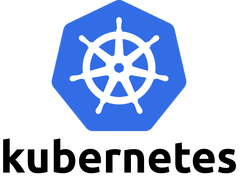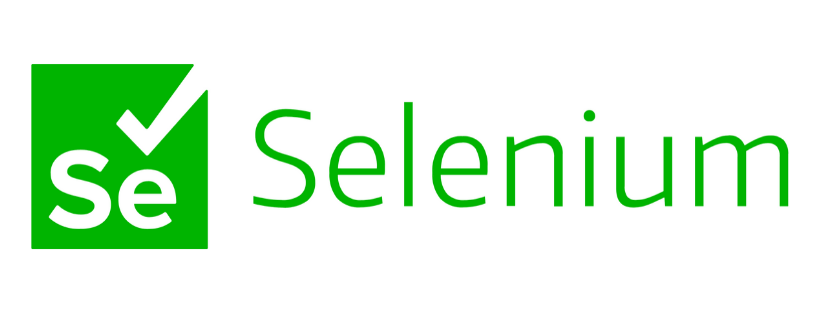
DevOps has exploded in popularity across the globe, affecting every major industry sector – healthcare, finance, banking, insurance, eCommerce, and manufacturing, to mention a few. Organizations of all sizes are taking advantage of DevOps Consulting’s potential to help them achieve business success in terms of enhanced productivity and profitability.
The tools and technology that underpin DevOps have grown in popularity as the technical world has expanded.
DevOps is a collection of cultural concepts, practices, and technologies that increase an organization’s ability to build high-speed applications and services, allowing it to innovate and improve products at a faster rate than traditional software development and infrastructure management approaches.
DevOps teams keep track of the entire development process, from planning to development to integration and testing to deployment and operations. This enables teams to respond fast and automatically to any worsening in the client experience.
Top 10 Best DevOps Tools you should learn in 2022
- Docker
- Kubernetes
- Jenkins
- Ansible
- Splunk
- GitHub
- Nagios
- Gradle
- Selenium
- Slack
Docker

Docker is a popular software platform for quickly developing, testing, and deploying applications. It’s a great PaaS solution since it uses OS-level virtualization to distribute software in containers. It uses containers to package programs with the essential requisites before shipping them as a single package as a lightweight tool. The environment does not need to be set up and configured every time it is delivered or tested. Docker excels at automating the entire development to the deployment process.
Key Features –
- Containers may be used with any programming language
- Containers can be shipped to any place
- Supports distributed development
- Ability to isolate programs in distinct containers
- High-end scalability with minimal downtime
- Virtual machines are no longer required.
- Integrates nicely with other DevOps monitoring tools, such as Jenkins
Kubernetes

Google’s Kubernetes is a popular container orchestration tool. Kubernetes, as a capable DevOps solution, aids in the deployment of containerized applications to a cluster of devices and automates the distribution of containers across them. Containers are organized into logical entities here. It is thought to be advantageous for larger projects. It has a number of advantages over other cluster management tools.
Key Features –
- Automated distribution simplifies deployment to many devices.
- Significantly aids in the management of complex projects involving large groups of people.
- A great container orchestration tool that has been released to the public.
- Enables resources to leverage Microservices, Serverless Computing, and other similar technologies.
- Benefits development speed and ensures reliability – Containerized programs are simple to deploy, scale, and administer.
Jenkins

Jenkins is an open-source continuous integration server that automates a software project’s whole build cycle. The Pipeline feature of this application is its USP, as it allows developers to automatically commit code to the repository, execute test cases, and retrieve reports generated after testing.
This extremely customizable tool gives you immediate feedback, so you’ll know if a specific sprint is causing a broken build or injuring it. Jenkins can automate most of the procedures and tools used in the SDLC, helping team members to boost their throughput.
Key Features –
- Requires less upkeep and takes use of the automation scale
- Multiple plug-ins to build and test any sort of project – Java-based support, simple to use on most operating systems – Windows, Unix, Mac OS X, etc. – Supports continuous integration and continuous delivery
- Increases concurrency by spreading jobs across multiple devices.
- Configuration/installation is flexible and simple.
Ansible

The Ansible tool is built for cooperation, and the automation process can be scaled up, controlled, automated, and deployed with ease, resulting in increased productivity. With the help of Ansible, IT procedures may be easily automated, as well as the full application life cycle.
Key Features –
- Ansible can assist with the deployment of multi-tier apps.
- Ansible aids in the management of systems and the avoidance of complexity throughout the development process.
- It is designed for configuration management to be very simple, dependable, and consistent.
- It aids in the mitigation of risk associated with a lack of knowledge of the IT infrastructure.
Splunk

Splunk is a software platform that allows you to search, analyze, and display machine-generated data or logs acquired from your IT infrastructure and business’s websites, applications, sensors, and devices.
Key Features –
- Store, explore, analyze, and visualize data generated by machines
- Import data in a variety of file formats
- Develop operational intelligence knowledge objects
- Keeps track of company KPIs in order to gain log insights.
GitHub

For seamless collaboration, GitHub is one of the top DevOps tools. Developers can use this tool to make rapid code changes that are immediately communicated to the rest of the team. Due to the branched history of modifications that are saved contiguously within the tool, immediate rollbacks to the previous version can be done within seconds in the event of an error or fallout.
Key Features –
- Easy Project Management
- Increased Safety With Packages
- Effective Team Management
- Improved Code Writing
- Increased Code Safety
- Easy Code Hosting
Nagios

Nagios is a well-known DevOps tool that is used by IT infrastructure monitoring teams to diagnose and resolve any infrastructure-related issues. The program includes a wide range of network, log monitoring, and server management capabilities.
Key Features –
- Nagios Core is open source, hence free to use.
- It can scale and manage 1000s of hosts and servers.
- The in-depth look at network traffic sources is delivered by Nagios Network Analyzer and high-level information for potential security threats is also delivered by the tool.
- It can monitor network protocols, mission-critical infrastructure components, network infrastructure and system metrics.
Gradle

Gradle, as a versatile construction tool, is ideal for supporting teams in building, automating, and delivering software more quickly and effectively. It’s written in Java, Kotlin, and Groovy, among other languages. Gradle has a lot of configuration possibilities, thus it’s regarded quick and accurate. It is the official build tool for Android Studio, according to Google.
Key Features –
- A well-developed API and ecosystem of plug-ins and integrations
- The ability to select your preferred language
- Faster than its competitors thanks to its daemon and build cache – Reliability and flexibility
- Explains build scripts using a Groovy-based DSL – Saves a lot of time thanks to incremental builds
Selenium

Selenium is a web application testing framework that may be used everywhere. It has a user-friendly interface for creating automated tests.
Key Features –
- Develop robust regression automation suites and tests that run in the browser
- Create test scripts in a variety of programming languages, including Java, Python, C#, Ruby, Perl, PHP, and JavaScript.
- Supports testing on several platforms, including iOS and Android.
- Creating a keyword-driven framework for a WebDriver is simple.
Splunk

Splunk is a software platform that allows you to search, analyse, and display machine-generated data or logs acquired from your IT infrastructure and business’s websites, applications, sensors, and devices.
Key Features –
- Store, explore, analyse, and visualise data generated by machines
- Import data in a variety of file formats
- Develop operational intelligence knowledge objects
- Keeps track of company KPIs in order to gain log insights.
Conclusion
So, these were the top 10 DevOps tools which are being increasingly adopted by companies across the globe. If you want to get certified in these toolsets and other tools, Just contact DevOpsSchool. Its one of the best institute who has trained more than 8000 students so far successfully. For more info contact www.devopsschool.com